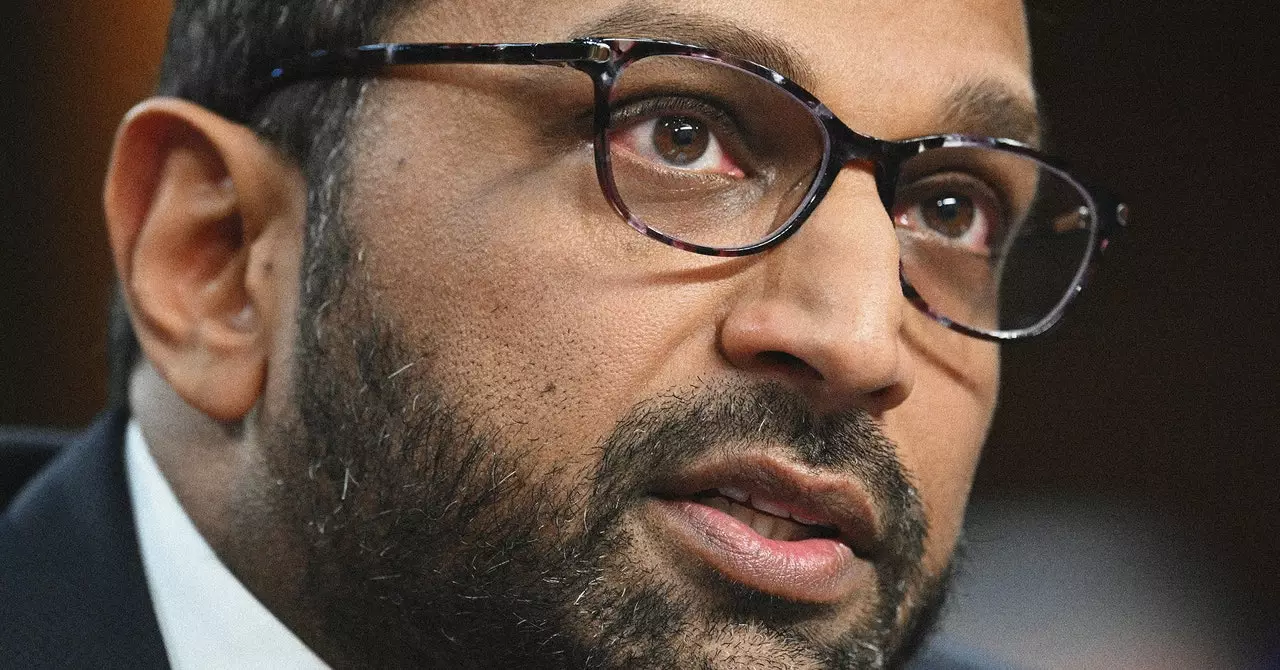The intersection of politics, business, and ethical governance is a constant source of scrutiny in the United States. Recent revelations about Kash Patel, President Donald Trump’s nominee for the head of the Federal Bureau of Investigation (FBI), emphasize this ongoing issue. Patel’s significant financial ties to Shein, a contentious fast-fashion retailer, raise serious questions about potential conflicts of interest, transparency, and the integrity expected from a leader of a major federal agency.
According to newly examined records, Patel holds stocks in Shein valued between $1 million and $5 million. This stake was disclosed ahead of his Senate confirmation hearing, creating an immediate stir among lawmakers and watchdog groups. The crux of the issue lies in Patel’s role as a consultant for Shein; intriguingly, this link began just a month before the company engaged a prominent lobbying firm associated with Pam Bondi, Trump’s U.S. Attorney General. Such timing raises eyebrows regarding the relationship dynamics between government officials and corporate entities, hinting at the potential for compromised ethical standards.
Patel has expressed no intention of divesting from his Shein shares should he ascend to the position of FBI Director. This decision places him in a precarious position, where his financial interests may intersect with his responsibilities concerning federal investigations. The general consensus among ethics experts is that while Patel’s current holdings do not require him to recuse himself from matters pertaining to Shein, the perception of impropriety can be damaging. Jordan Libowitz of Citizens for Responsibility and Ethics in Washington succinctly states that the “optics of the situation are not great,” pushing for divestment or recusal as a prudent course of action.
Shein, which is primarily known for its inexpensive clothing manufactured in China, has faced considerable backlash over alleged unethical practices. Reports of labor exploitation, environmental negligence, and the promotion of a throwaway culture have engulfed the brand, bringing to the fore serious questions about its business ethics. The timing of Patel’s consulting role, coinciding with Shein’s controversial operations and attempts to launch IPOs both in the U.S. and the UK, cannot be overlooked. In fact, significant political figures, including then-Senator Marco Rubio, have publicly urged financial regulators to halt Shein’s IPO plans, reflecting the broader concerns surrounding the company’s operational ethics.
Patel’s financial disclosure indicates that he started consulting for a Cayman Islands company named Elite Depot Ltd., identified as a “fashion management company.” This company is reportedly intertwined with Shein, serving as its parent entity. Such global corporate structures often complicate scrutiny, as they can obscure the actual lines of accountability for companies operating under different jurisdictions. The intricacies of Patel’s associations with Elite Depot and Shein beg the question: Can he effectively separate his financial entanglements from his responsibilities as head of the FBI?
The upcoming Senate vote on Patel’s confirmation will not only reflect the political climate but also serve as litmus testing the institution’s commitment to ethical standards. As lawmakers assess Patel’s qualifications, they must grapple with the delicate balance of respecting individual professional engagements while safeguarding the integrity of federal agencies. The stakes are high; if confirmed, Patel’s leadership could shape the FBI’s operational integrity and how it engages with corporate entities that come under investigation.
Furthermore, the implications of allowing someone with substantial financial interests in a controversial company to lead federal law enforcement cannot be overstated. The decisions made by the FBI under his tenure could evoke significant public trust—or distrust—depending on Patel’s perceived objectivity. If the nomination proceeds, it could pave the way for future nominees with similarly complex financial narratives, increasingly blurring the lines between public service and personal gain.
While Kash Patel’s nomination is undoubtedly a political maneuver fraught with complexities, it serves as a critical moment for reflection on government ethics and the responsibilities of public figures. The outcry regarding his financial ties to Shein underscores the necessity of transparency and accountability in public office—principles that, if compromised, could undermine the very foundation of trust the American people place in their institutions. The Senate’s evaluation of Patel’s candidacy will be pivotal in reinforcing or challenging the ethical standards that define public service in contemporary America.

